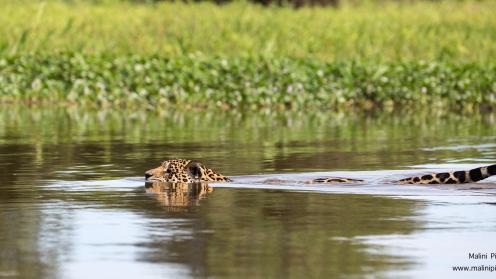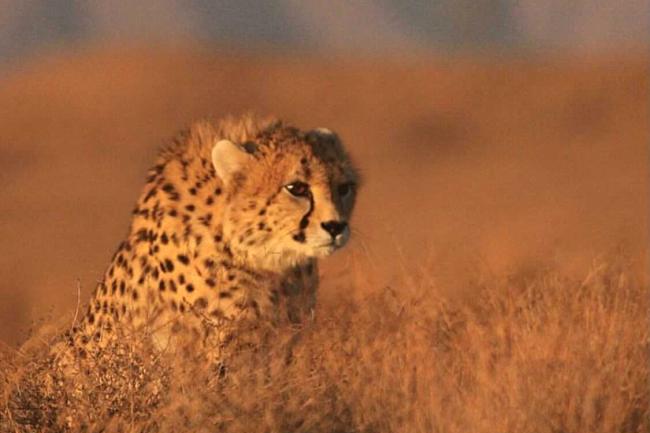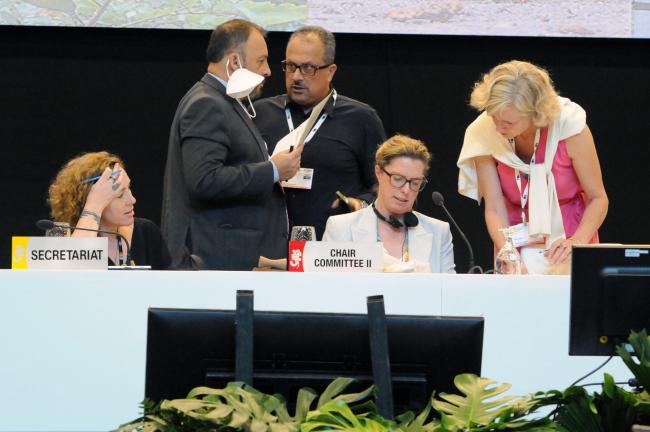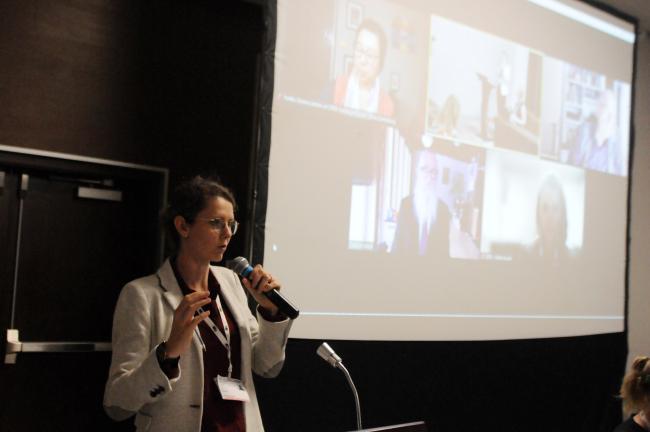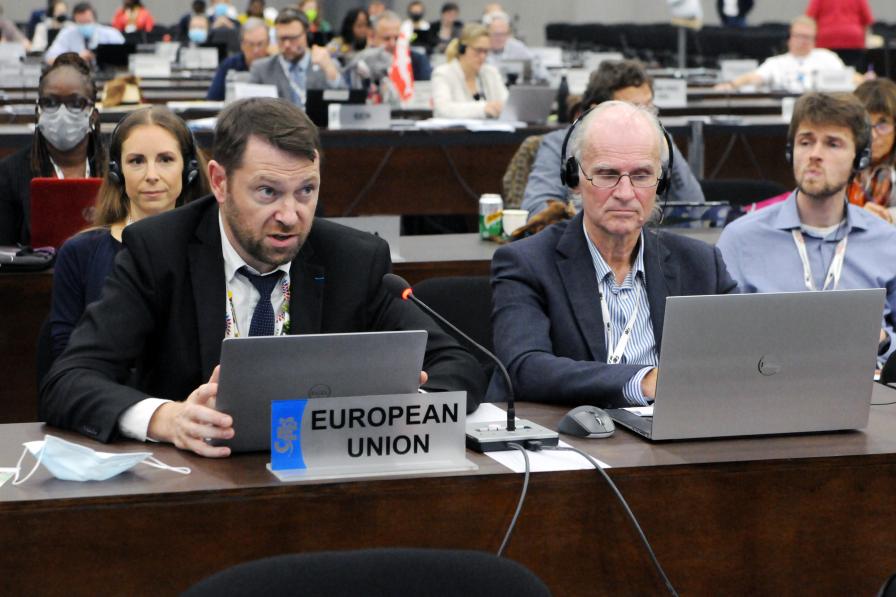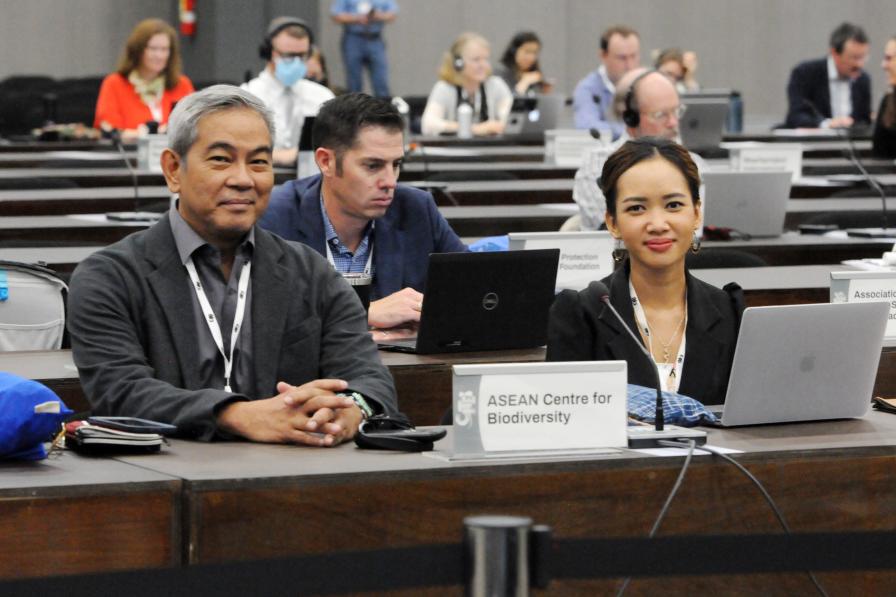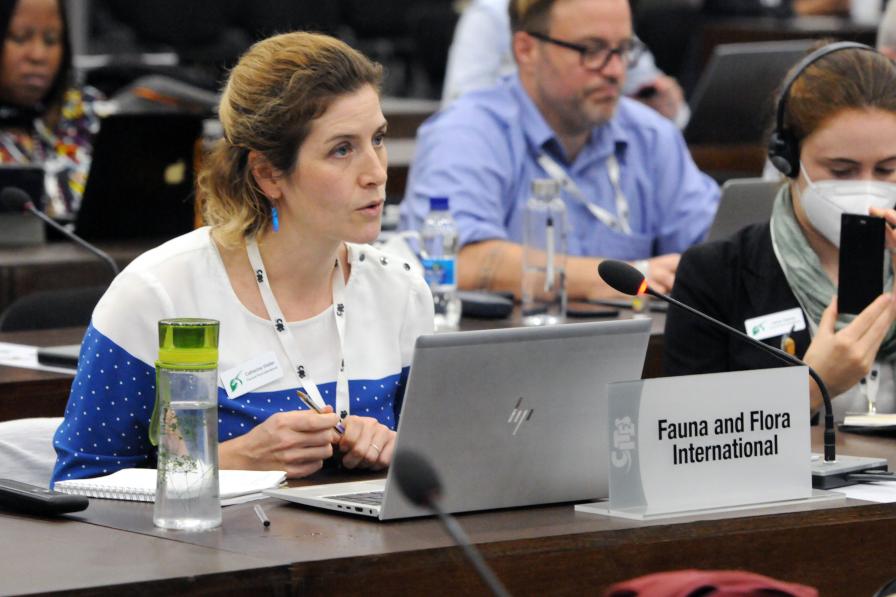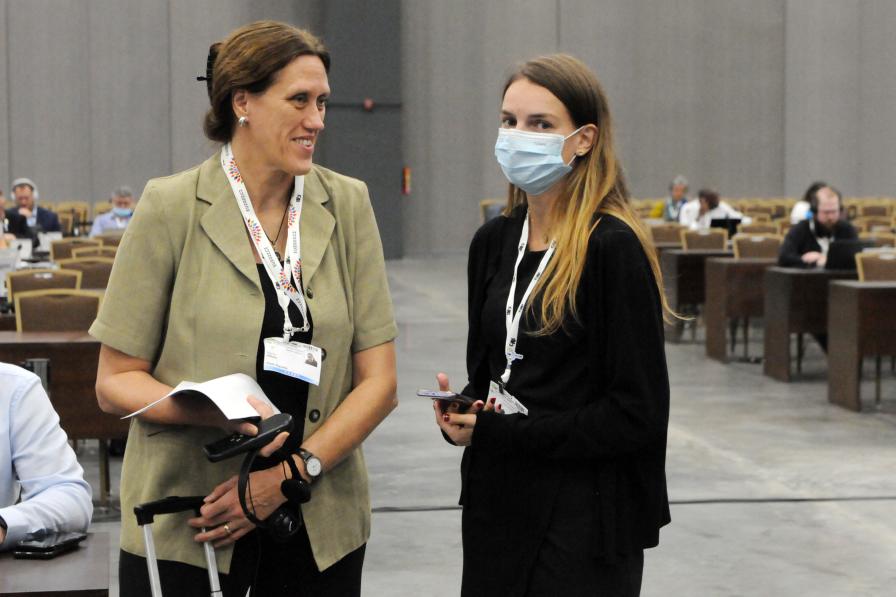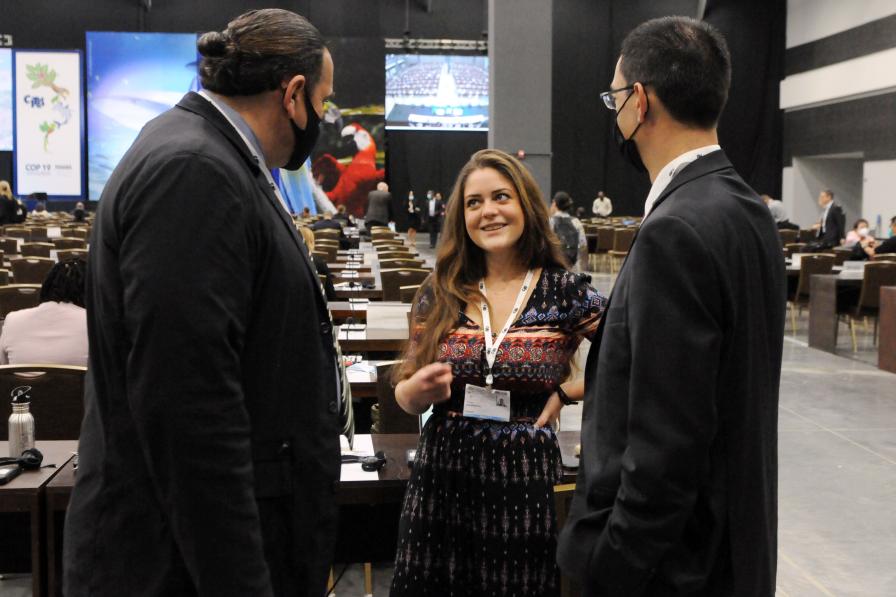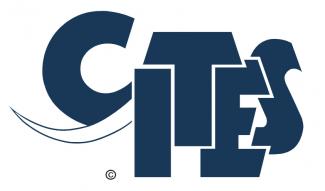With final plenaries looming on Thursday and Friday, Tuesday’s sessions of CoP19 turned businesslike. Both committees worked efficiently, approving items at a brisk pace and hearing back from working groups on conciliatory bridging proposals.
Still, some contentious issues remained. In Committee I, the question of whether livelihoods should be included as a listing criteria for the Convention’s Appendices brought passionate interventions, but was ultimately defeated in a vote. One party arguing against their inclusion said that doing so would “significantly undermine the Convention’s conservation outcomes.”
In Committee II, parties continued to disagree on a gender action plan, especially regarding the definition of gender itself. Exceptionally, two secret ballots were held on the definition, with many parties choosing to reveal their votes into the record. They also approved documents on the totoaba fish, transportation of live specimens, and demand reduction to combat illegal trade.
Want to dive deeper? Read the full Earth Negotiations Bulletin daily report.
Another evening session kept delegates of Committee I at the venue until late into the night. Chair Vincent Fleming (UK) offered delegates “dinner and drinks” as an incentive to stay—perhaps learning from the misadventures of Committee II, which lost its quorum three times the previous night and was forced to adjourn early for lack of participants.
Throughout the day, side events took place on, among others,
- Introducing a new human-elephant coexistence toolbox;
- Trade and conservation of Matamata Turtles;
- Combating wildlife crime in West Africa;
- International trade in frogs‘ legs and its ecological impact; and
- Spatial Data Infrastructure for addressing data gaps in combating illegal wildlife trade and meeting sustainable development goals in Africa.
All ENB photos are free to use with attribution. For CITES CoP19 please use: Photo by IISD/ENB | Diego Noguera
